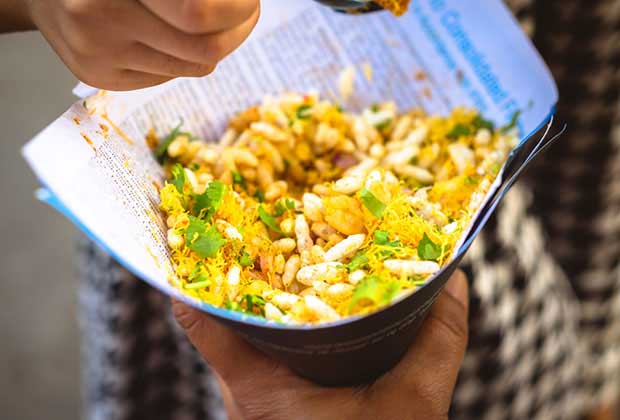Do We Undersell Indian Food?
- By Kalyan KarmakarLoading...
- | 13 April 2016 3:26 PM IST
 X
X
 Indian food is synonymous with layers of textures and flavours.
Indian food is synonymous with layers of textures and flavours.
Ask Manjit Gill, the corporate chef of the ITC Hotels chain if we undersell Indian food, and he is sure to say the cuisine has not been celebrated to the extent it should have been.
I was having some Delhi chaat at the ITC Grand Bharat with the chef on Monday before heading back to Mumbai later in the evening. We were served the city’s flagship papdi chaat, golgappas (their version of Kolkata’s phuchkas, Mumbai’s panipuris and Lucknow’s batashe) and alu tikki!
I told Chef Gill about the epiphany when it comes to Indian food and textures I had while eating bhelpuri, Mumbai’s version of Kolkata's jhaal muri about five years ago. A realisation, which had happened soon after I began watching MasterChef Australia. I was mesmerised by its judges telling the viewers that food should have a contrast of textures and colours. My immediate reference point was the brown curries one finds in Indian restaurants – the butter chickens and the roganjoshes – and thought, ‘wow I wish we had this contrast in Indian food too. Wouldn’t that be exciting?’
Soon after that, I met Xanthe Clay, who writes on food for The Telegraph in the UK, and took her on a food walk in Mumbai’s Fort. Of all the dishes that she tried that afternoon, what fascinated her the most was the bhelpuri. When we discussed about it, we realised that it was really the burst of flavours, the sharp and fresh aromas and the multi-sensorial taste experience of each mouthful that had won us over. Yes, this was an Indian dish with the hallowed ‘contrast of colours and textures’.
I excitedly told Chef Gill about my bhel-based ‘discovery’ from that day. I could see the pain on his face when I gave an Australian reference. “How old is their food tradition?” he asked. “Has it been tested?” Chef Gill went on to say that the Indian food tradition has evolved over the centuries, and is tried and tested. It is based on the confluence of six tastes, which were sweet, sour, bitter, salt, astringent and pungent. He added that the dominance of any one depends on the season in which we are in. In case you are wondering, in summer, bitter should lead the taste balance to counter the heat.
Chef Gill is proud of our cuisine because of the principles on which they are based. Even the simple street food chaat that we had just eaten has so much history he pointed out. Chaats were conjured some 400 year ago in Delhi when the Mughals wanted to come up with some food that would help counter waterborne diseases.
“Did you notice that the curd in the chaat is sweet?” he asked. “It is done so to avoid acidity. You should never add salt to curd. It should be sweetened or served plain. Even the curd used in the raita in the Bukhara at ITC Maurya doesn’t have salt,” he added.
Chef Gill’s reverence for the scientific principles that lie behind Indian food reminded me of the Twitter chat that I had with Chef Atul Kochhar and Vivek Singh a few day’s ago.
These chefs, who have pushed the envelope when it comes to Indian food in the UK, said they were pained to see people on TV shows, YouTube et al saying that they will ‘now’ show the world how to prepare ‘healthy’ Indian food. They both didn’t like the implication that Indian food was not healthy to the world.
But, what about modernising Indian food? Chef Gill, who has seen the Indian restaurant scene evolve over the last 41 years as a chef, believes there is a lot more diversity that is yet to be unravelled to the world.
Molecular gastronomy?
“What about the rasgulla from your Bengal?” asked the chef. “What if I tell you that it is milk treated and converted to an amorphous cottage cheese, and then boiled to change form again, and converted into spheres, and finally soaked in sugar syrup to come up with something so different from the pot of milk you started with?” (these are my words, Chef Gill’s spiel was even more technical)
“Isn’t that molecular gastronomy? Except we did it way before the term was invented!” he thundered before signing off.

Kalyan Karmakar
Kalyan is a food and travel blogger, who is excited about Indian food and tries his best to bring it alive through his stories. He is happiest when he eats at small, family-run places. He blogs at <a href="http://www.finelychopped.net/"> Finely Chopped.</a>


